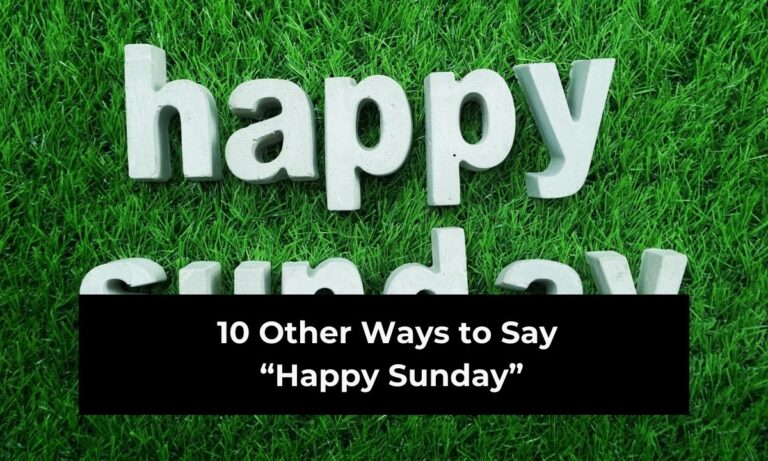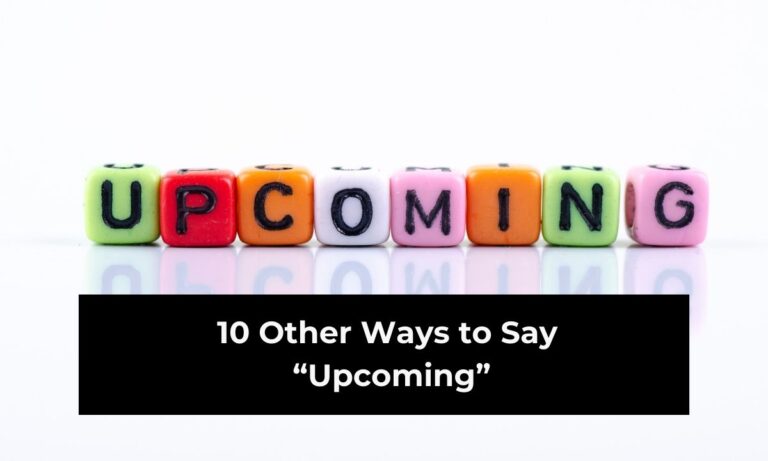There’s something powerful about hearing the words, “I believe in you.”
It’s not just a phrase—it’s a boost of courage, a reminder that someone sees your potential, and a spark of motivation when doubt starts to creep in. But sometimes, repeating the same words over and over can feel a little too familiar. If you want to truly inspire someone, finding different ways to express your faith in them can make your encouragement feel even more personal and heartfelt.
You’ve probably experienced this yourself. Maybe you were facing a big challenge, and someone close to you found just the right words to give you strength. The way they phrased it stuck with you—because it wasn’t just the words, it was the feeling behind them. That’s exactly what you can give to others when you choose meaningful, creative alternatives to “I believe in you.”
Encouragement is more than cheerleading. It’s about showing someone you notice their hard work, you recognize their abilities, and you trust them to rise to the occasion. And when you use different phrases, you can match your message to the moment—whether they need gentle reassurance, bold motivation, or quiet confidence.

In this article, you’ll discover 10 unique ways to say “I believe in you” without actually saying those exact words. Each one comes with an explanation, examples of when to use it, and a friendly breakdown so you can feel confident delivering it. You’ll find phrases that work for friends, family, co-workers, or anyone in your life who needs a lift.
By the time you finish reading, you’ll have a go-to set of encouraging phrases that sound genuine, uplifting, and tailor-made for the person you’re talking to. So, let’s dive in and find the perfect way to express your faith in someone’s potential.
1. “You’ve Got This”
When someone is facing a challenge, “You’ve got this” is a short, snappy, and motivating way to remind them of their abilities. It’s casual, friendly, and works perfectly in moments when they might be overthinking or doubting themselves.
This phrase works especially well in high-pressure moments—like right before a presentation, an exam, or a big performance. You’re letting them know you believe in their skills without overloading them with long speeches. The beauty is in its simplicity.
Picture your friend preparing for a big job interview. They’ve rehearsed answers, polished their resume, and planned their outfit. But the nerves are still there. A quick “You’ve got this” can break through the anxiety and remind them that they are ready.
You can also make it more personal by adding a reason:
- “You’ve got this—you’ve worked so hard for it.”
- “You’ve got this—I’ve seen you handle tougher things before.”
The more you tie the phrase to their past wins or specific strengths, the more powerful it becomes. It’s a simple way to send a big message: they’re capable, they’re ready, and you believe in them completely.
2. “I Know You Can Do This”
Sometimes, people need reassurance that goes beyond cheerleading—they need a calm, confident statement. “I know you can do this” communicates certainty. You’re not guessing. You’re not hoping. You know.
This phrase works well in both personal and professional settings. If a co-worker is nervous about leading their first meeting, telling them “I know you can do this” reinforces that you’ve seen their capabilities firsthand. For a friend training for their first marathon, it becomes a way of saying you’ve watched their commitment and you trust their ability to follow through.
The tone you use matters here. It’s not meant to be shouted or overly dramatic. A steady, genuine delivery makes the listener feel grounded and supported. You’re transferring your confidence to them.
To make it even stronger, you can pair it with a reminder of their past accomplishments:
- “I know you can do this—you’ve already come so far.”
- “I know you can do this—you’ve handled even bigger challenges.”
By using this phrase, you’re not only offering encouragement, you’re anchoring it in reality, which can make all the difference when someone is battling self-doubt.
3. “You Make It Look Easy”
This phrase has a double benefit: it’s both encouraging and a compliment. When you say, “You make it look easy,” you’re telling someone they’re so skilled, they make difficult things seem effortless.
It works particularly well when someone is in the middle of doing something challenging. Maybe your sister is cooking an elaborate meal for the first time, or your friend is putting together a complex project at work. Pointing out how natural they make it seem gives them a confidence boost and acknowledges their talent.
Of course, you don’t want it to sound sarcastic or dismissive—tone is everything. Say it warmly and with a smile, so they understand you mean it as genuine praise.
This phrase is also great for easing tension. When someone is nervous, they often focus on every small mistake. Hearing “You make it look easy” can shift their focus from what they think is going wrong to what they’re doing right.
Add more weight by following up with specifics:
- “You make it look easy—you’re so well-prepared.”
- “You make it look easy—I can tell how much you’ve practiced.”
By pairing the compliment with specifics, you’re turning it from a casual remark into a lasting vote of confidence.
4. “I’m Behind You All the Way”
Encouragement isn’t always about skills—it’s about support. “I’m behind you all the way” tells someone you’re committed to standing with them, no matter what happens.
This phrase is especially powerful when someone is taking a risk or stepping into something new. Maybe a friend is starting their own business, or a family member is moving to a new city. Knowing they have someone in their corner can be the reassurance they need.
It’s more than “I believe in you.” It’s “I’m with you, even if things get tough.” That promise of loyalty can give someone the courage to push forward.
You can make it even more personal by adding how you’ll support them:
- “I’m behind you all the way, and I’ll help however I can.”
- “I’m behind you all the way—you won’t have to face this alone.”
When you say this, you’re not just offering belief—you’re offering partnership. And sometimes, knowing they’re not alone is the most powerful form of belief you can give.
5. “I’m Proud of You”
Few phrases carry as much emotional weight as “I’m proud of you.” It’s not just about believing in someone—it’s about recognizing their effort, growth, and achievements.
This works beautifully when someone has just accomplished something, big or small. It could be a student finishing a difficult semester, a friend overcoming a personal challenge, or a colleague completing a demanding project. By telling them you’re proud, you’re validating their hard work and letting them know it was worth it.
Even more powerful is saying it before the final result is in—showing that your pride comes from their courage to try, not just their success. This kind of encouragement can help someone push through fear of failure.
For extra impact, be specific:
- “I’m proud of you for not giving up.”
- “I’m proud of you for stepping outside your comfort zone.”
This turns the phrase from a general compliment into a deeply personal affirmation.
6. “You Always Find a Way”
This phrase recognizes someone’s resilience. “You always find a way” tells them you’ve noticed their ability to adapt, problem-solve, and push through challenges.
It’s perfect for moments when someone feels stuck or overwhelmed. Reminding them of their history of figuring things out can reignite their determination.
It’s also a way of shifting focus from the current obstacle to their proven strengths. People often forget how resourceful they’ve been in the past. Your reminder can help them see they already have the tools to succeed.
Add a personal touch by referencing past examples:
- “You always find a way—remember when you handled that last-minute change?”
- “You always find a way—you’ve turned tougher situations around before.”
By grounding your encouragement in their track record, you’re not just expressing belief—you’re proving it.
7. “You’re More Capable Than You Think”
Self-doubt can shrink someone’s confidence. “You’re more capable than you think” challenges that inner critic and invites them to see themselves in a new light.
This phrase is best used when someone underestimates themselves. Maybe they’re hesitant to apply for a promotion, start a project, or try something new. Your words can open the door for them to take that first step.
The key is to deliver it with warmth and sincerity. It’s not about pushing them into something—they need to feel you’re encouraging them because you genuinely see their strengths.
Pair it with evidence:
- “You’re more capable than you think—you’ve already handled situations like this.”
- “You’re more capable than you think—you just don’t give yourself enough credit.”
This type of encouragement can stick with someone long after the conversation, helping them approach challenges with more confidence.
8. “You Inspire Me”
Telling someone “You inspire me” is a unique way of expressing belief in them. It flips the script—you’re not just supporting them, you’re saying their actions motivate you personally.
This is especially powerful when said to someone who might not realize the impact they have on others. Maybe it’s a friend who’s pursuing their dreams despite obstacles, or a co-worker who consistently shows kindness and dedication.
By telling them they inspire you, you’re acknowledging both their actions and their influence. It validates their choices and reinforces that what they’re doing matters—not just to them, but to those around them.
For more depth, tell them how they inspire you:
- “You inspire me with your determination.”
- “You inspire me to push past my own fears.”
This phrase is a gift—it lets someone see themselves through the lens of admiration, which can be deeply empowering.
9. “I Trust You”
Trust is one of the strongest ways to show belief in someone. “I trust you” tells them you have confidence in their judgment, decisions, and abilities.
It’s especially meaningful when someone is taking the lead on something important. Maybe you’re letting a teammate handle a big client meeting, or you’re giving a friend control over a group project. By saying “I trust you,” you’re handing them responsibility with confidence.
This phrase can also be a quiet form of encouragement. You’re not just cheering from the sidelines—you’re giving them the reins.
Add clarity by explaining why you trust them:
- “I trust you because you’ve proven yourself time and again.”
- “I trust you—you always follow through.”
When someone knows you trust them, it can strengthen their self-belief and help them rise to the occasion.
10. “I’ve Got Your Back”
“I’ve got your back” is a powerful promise. It means that no matter what happens, you’ll be there to support, defend, or help them.
This phrase is perfect for situations where someone feels uncertain or vulnerable. Maybe they’re about to speak up in a meeting, confront a personal issue, or take a stand for something they believe in. Knowing you’ll stand with them can be the safety net they need.
It’s not just about belief—it’s about action. You’re committing to being part of their journey, not just cheering from afar.
Make it personal:
- “I’ve got your back, no matter what the outcome is.”
- “I’ve got your back—you can count on me.”
This kind of support can be the deciding factor between someone stepping forward with confidence or holding back in fear.
Conclusion
Finding different ways to say “I believe in you” allows you to connect on a deeper level with the people you care about. Each phrase in this list carries its own flavor of encouragement—some are bold and motivating, others are steady and reassuring. By matching the right phrase to the right moment, you can make your encouragement feel genuine and impactful.
Remember, it’s not just the words that matter, but the sincerity behind them. Whether you’re cheering on a friend before a big leap, supporting a loved one through a challenge, or acknowledging someone’s growth, your belief in them can become the fuel that keeps them going.
Use these phrases as tools in your conversations. Adapt them to fit your style, your relationship, and the situation. The more personal you make them, the more they’ll resonate.
At the end of the day, your words have the power to change how someone sees themselves. With the right encouragement, you can help someone step into their potential—and that’s one of the greatest gifts you can give.
FAQs
1. Why should I use different phrases instead of just saying “I believe in you”?
Using different phrases keeps your encouragement fresh and tailored, making it feel more personal and impactful.
2. Can I use these phrases in professional settings?
Yes. Many of these phrases work well with colleagues, employees, or team members—just adjust your tone for the setting.
3. How do I make encouragement sound genuine?
Tie your words to specific actions or qualities you’ve noticed. This shows your belief is based on real evidence.
4. Should I use these phrases in person or in writing?
Both. They work just as well in conversations, texts, cards, or emails—choose the method that feels most personal for the situation.
5. What if I don’t feel confident giving encouragement?
Start small. Even a short, sincere phrase can make a big difference. Over time, you’ll become more comfortable expressing support.





